China's anti-graft drive fueled by Party's "stricter-than-law" disciplinary policy
Updated: 2015-06-16 21:56
(Xinhua)
|
||||||||
BEIJING - A Chinese state oil executive and a senior commerce official were the latest to be taken down by the country's anti-corruption campaign Monday, shortly after a life sentence was given to Zhou Yongkang last week - the most elite official on the list so far.
Sun Hongzhi, former vice minister of the State Administration for Industry & Commerce, and Liao Yongyuan, former general manager with China National Petroleum Corporation, are both under criminal investigation for taking bribes.
But the discipline violation that got them expelled form the Communist Party of China (CPC) was far more diversified and detailed than bribery. According to the Central Commission for Discipline Inspection (CCDI), Sun and Liao both failed to report certain "personal affairs" to the Party, such as marital status, personal finances situation and their family members' business activities. They were also accused of adultery.
Their discipline violation charges enforce the statement made by CCDI's chief Wang Qishan in early May that Party discipline is stricter than law.
Some of the misconduct would not be punishable for ordinary citizens, said Huang Weiting, a long-term researcher on anti-corruption with Qiushi, the CPC Central Committee's official magazine.
The traditional concept that a Party member should follow a higher moral and professional standard than ordinary people is reiterated as President Xi Jinping lays out the strategic "Four Comprehensives", which includes strictly governing the Party.
Strict discipline and effective inspection of its implementation are the major tools to govern the Party, said Huang. The progress made against anticorruption is a product of this broader campaign but not the only target.
The CCDI has been restructuring its network to highlight its role of meticulously supervising Party officials, preventing them from violating the disciplines and punishing those who did.
The agency has increased the number of inspection divisions from eight to 12 and the number of inspectors and investigators to about 70 percent of its total staff.
Local discipline inspection agencies are also reorganizing their workload and cutting those not related to core duty. The 31 provincial discipline inspection agencies had been asked to sit on about 4,600 coordination committees for local governments. Now the number dropped to 460.
Sending external inspectors from the CCDI to central and provincial governments, public institutions and state-owned enterprises has become a regular practice. This year's focus is state firms supervised by the central government.
Last week, six big state firms were named and shamed for their executives' travel using public expenses, playing golf, smoking expensive cigars, frequenting private clubs and hosting high-profile wedding and funeral ceremonies.
Discipline inspection agencies are also working to clarify the division of their duty with prosecutors in anti-graft cases.
Commenting on the revision of a regulation on internal punishment for discipline violation, Wang Qishan stressed that Party rules should not be mixed with legal provisions and those within the jurisdiction of the law will not be included in the Party regulation.
"The discipline inspection agency should not be considered Party's internal prosecuting body. This is a misunderstanding," Huang Weiting said. "They are not up for violation of law, though breaking the law is definitely forbidden by the Party. Their work is beyond handing over suspected corrupt officials to prosecutors."
Wang Binyi, chief of the discipline inspection agency of east China's Anhui Province, wrote in an article published by Monday's Qiushi Magazine that disciplining "minor misconduct" contributes to the country's anticorruption campaign, as an effective move to prevent officials from making bigger mistakes.
"Some officials think that as long as they do not break the law, it is OK to be a bit loose. This is a dangerous attitude and should not be allowed," he wrote.
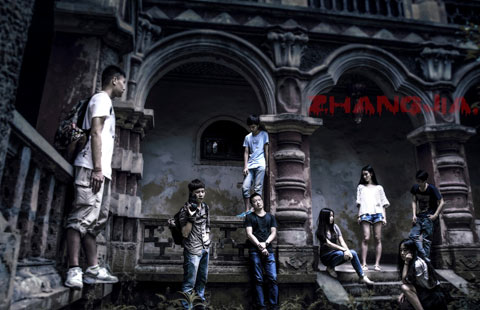
 Ten photos you don't wanna miss - June 16
Ten photos you don't wanna miss - June 16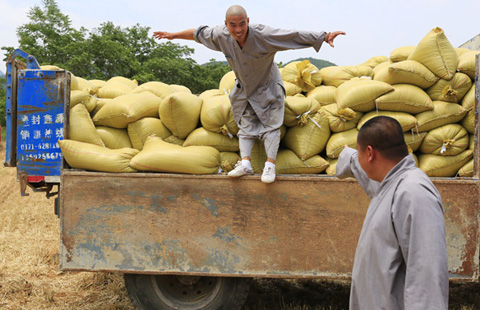
 Shaolin monks harvest bumper crop
Shaolin monks harvest bumper crop
 Cambridge students mark end of exam with boat race
Cambridge students mark end of exam with boat race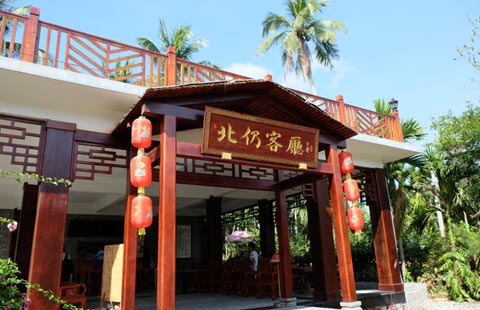
 Village attracts tourists after first lady's visit
Village attracts tourists after first lady's visit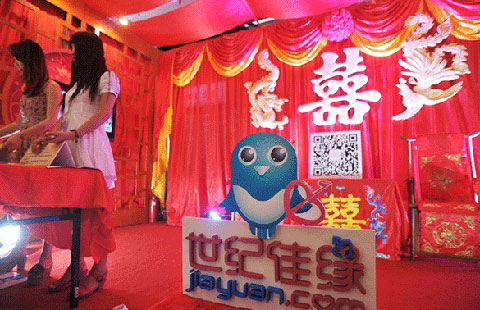
 Top 9 US-listed Chinese companies going private
Top 9 US-listed Chinese companies going private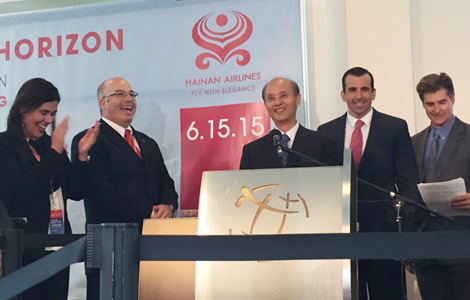
 Hainan San Jose to Beijing: Ready for take-off
Hainan San Jose to Beijing: Ready for take-off
 Trending Across China: A Porsche gilded in gold
Trending Across China: A Porsche gilded in gold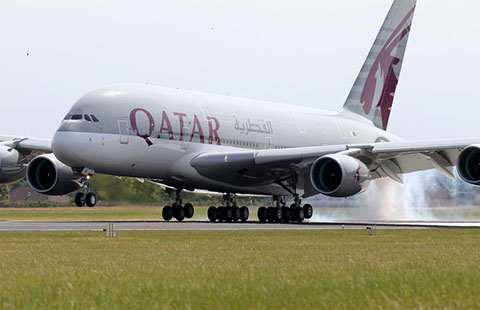
 Paris Air Show: From Bombardier's new C Series to China Airlines
Paris Air Show: From Bombardier's new C Series to China Airlines
Most Viewed
Editor's Picks

|

|

|

|

|

|
Today's Top News
Jeb Bush announces bid for 2016 Republican presidential run
China, US develop new MERS treatment
China to complete land reclamation of construction on some Nansha Islands soon
Military launches drive to root out corruption in construction projects
China, US to kick off key talks next week
China, US sign agreement to boost army cooperation
City honors slain NYPD
Detective Liu
Chinese students on trial in alleged torture of peer
US Weekly

|

|







